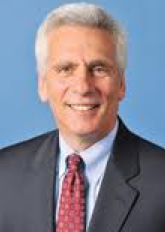But before you get too excited, or too incensed, depending on your orientation, keep in mind that federal investment in R&D amounts to about 1 percent of our economy. As I suggest later, while that may have been adequate in the past, it’s not enough if we’re going to get ahead of the environmental threats we face.
Constraining spending is another way in which presidents can influence the economy, for better and for worse. Generally, economists worry about the lack of spending restraint by presidents and other elected officials, and government spending has a pretty bad rep. But while presidents can hurt the economy by spending too freely, especially when they don’t pay for it, the converse is also true. By neglecting productive investments or spending on services that people really want and need, like health care, it’s possible to retard growth.
So how can we in the electorate recognize the right balance? What should we be listening for when presidents run their economy rap by us?
First, in an era when the market itself is generating huge inequalities, government should not exacerbate them. So when presidents go into distributional mode, watch out for Robin Hood in reverse. Someone who dropped in on our economic policy in the 2000s could be forgiven for thinking the big problem facing the American economy was that rich people didn’t have enough money. I know all the mumbo-jumbo about cutting their taxes so they’ll be more productive, but that supply-side nonsense has no credibility. In fact, as I’ve stressed throughout, the problem in today’s economy is much less slow productivity growth than it is the distribution of that growth. So beware of upward redistribution.
Regarding spending restraint, economics is all about the best way to spend scarce resources, and when said resources come from you, me, and, if the spenders neglect to pay the bill, our children, restraint is a venerable goal in and of itself. That said, it’s easy to overdo this one. Especially when it’s “our money,” we can easily resent its being spent. But before we jerk our knees in response to plans for government spending, we should look as closely as we can at what that spending is for. Is it for productive investments on behalf of future generations, or health care that’s provided more efficiently than it is by the private, or protection for our least advantaged citizens for stuff outside of their control, like, oh, I don’t know, say, levees in poor neighborhoods?
Finally, presidents can throw their weight around in important ways that end up having an influence over how income gets distributed. When Bush acted by executive order to change the overtime rules in a way that favored employers over workers, this had obvious distributional consequences (even the generally pro-business Republican Congress tried to stop him, twice, but he didn’t need their approval on this one). When Reagan fired the PATCO workers and Clinton opted to make NAFTA (a trade agreement that labor was against) his first big legislative priority, such actions sent important signals to markets about who was in and who was out. They tilted the balance of power, and power is at the heart of how economic outcomes get distributed.
Crunchpoint: Presidents have a great deal of influence on the economy. Those who take a balanced approach to the three tiers of spending priorities—redistribution, investing, and constraining—can make a big, positive difference in the economy and in the living standards of ourselves and our progeny. Those who play fair in the power game, keeping their thumbs either off the scales or moving back and forth from one side to the other, also provide important balance.
(Note: You can view every article as one long page if you sign up as an Advocate Member, or higher).





